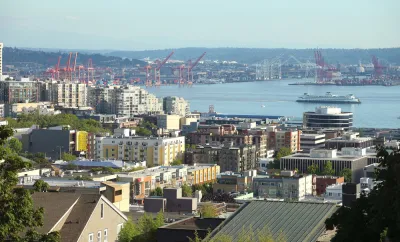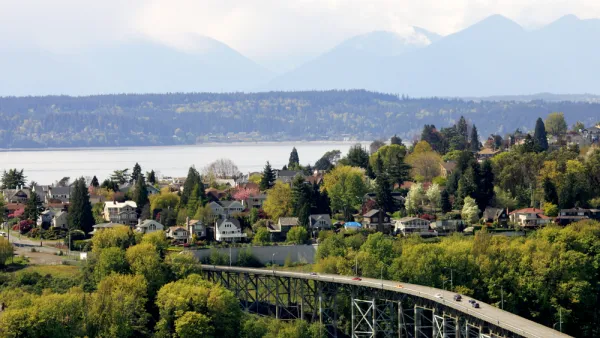State and local lawmakers hope that recent reforms to the Washington State Environmental Policy Act are only an initial step toward ending the law's use as a tool for delaying affordable housing plans.

Josh Cohen revisits the year in housing construction in Seattle for lessons on the effects of Washington's State Environmental Policy Act (SEPA). In 2019, according to the article, a number of long-delayed housing plans finally came to fruition:
In March, more than two years after legislation was first introduced, the Seattle City Council unanimously passed the centerpiece of its housing solution: citywide Mandatory Housing Affordability (MHA) upzones that require for-profit developers to build subsidized housing or pay into Seattle’s affordable housing fund. In June, the council voted unanimously to build at least 235 units of low-income housing at the decommissioned Fort Lawton site in Magnolia, 13 years after the process began. In July, after four years of delay, the council again voted unanimously to ease regulations on backyard cottages and basement apartments in an effort to incentivize their construction.
Instead of blaming the delays to those plans on the "Seattle process," Cohen pins responsibility on SEPA, which gives individuals "gives individuals tremendous power to slow down or stop land-use changes," according to Cohen.
Given the growing housing affordability challenges facing Seattle and other cities in the state, lawmakers at both the local and state levels are "working to reform the nearly 40-year-old environmental law and limit its power," reports Cohen. Some reforms have already been approved, as part of a housing density bill approved by the Washington State Legislature in 2019.
"The heart of the new law is a menu of things Washington cities can do to increase density, such as allowing backyard cottages in single family zones; allowing duplexes and triplexes in single family zones; and allowing larger buildings near transit hubs," explains Cohen. "In exchange for doing them, the cities are eligible for a $100,000 grant to help with planning. And, importantly, the law makes all of those actions exempt from SEPA appeal."
The city of Seattle also recently adopted a new law intended to "streamline" the SEPA process, even attaining political support from environmental groups like the Sierra Club’s Seattle Group, 350 Seattle, Futurewise and Climate Solutions on the way to approval.
FULL STORY: State environmental law slowed housing construction in Seattle. Lawmakers want to pick up the pace

Analysis: Cybertruck Fatality Rate Far Exceeds That of Ford Pinto
The Tesla Cybertruck was recalled seven times last year.

National Parks Layoffs Will Cause Communities to Lose Billions
Thousands of essential park workers were laid off this week, just before the busy spring break season.

Retro-silient?: America’s First “Eco-burb,” The Woodlands Turns 50
A master-planned community north of Houston offers lessons on green infrastructure and resilient design, but falls short of its founder’s lofty affordability and walkability goals.

Test News Post 1
This is a summary

Analysis: Cybertruck Fatality Rate Far Exceeds That of Ford Pinto
The Tesla Cybertruck was recalled seven times last year.

Test News Headline 46
Test for the image on the front page.
Urban Design for Planners 1: Software Tools
This six-course series explores essential urban design concepts using open source software and equips planners with the tools they need to participate fully in the urban design process.
Planning for Universal Design
Learn the tools for implementing Universal Design in planning regulations.
EMC Planning Group, Inc.
Planetizen
Planetizen
Mpact (formerly Rail~Volution)
Great Falls Development Authority, Inc.
HUDs Office of Policy Development and Research
NYU Wagner Graduate School of Public Service



























